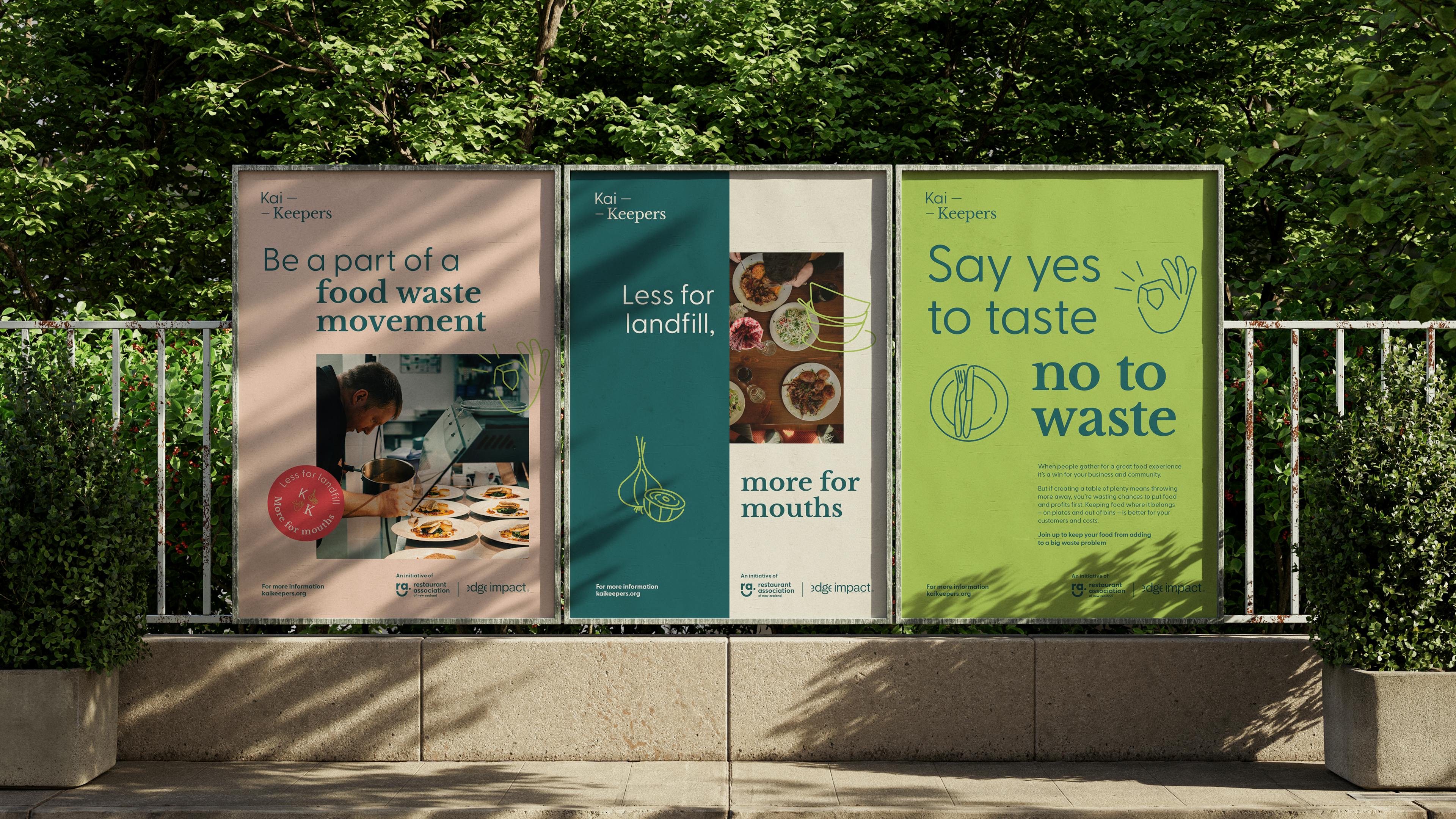
How Edge Impact and Restaurant Association of New Zealand are tackling food waste
Kai Keepers Pilot: Fighting Food Waste in Aotearoa
The Challenge
Each year, Aotearoa’s cafes and restaurants generate nearly 25,000 tonnes of food waste, with 61% of it entirely avoidable (based on previous industry research).
When food ends up in landfill, it’s not just an environmental loss—it’s a missed opportunity to enhance sustainability within the hospitality industry and boost financial outcomes for operators.
This data provided a starting point for the Kai Keepers initiative, which aims to refine these figures and drive impactful change.
Key deliverables year 2 - pilot and report in progress
Resources and collateral
Training materials for 4 pilot programmes
Pilot implementation support
Results and findings report
The Approach
To tackle this pressing issue and and generate actionable data across the industry, the Restaurant Association in conjunction with Edge Impact launched the Kai Keepers pilot, a groundbreaking initiative aimed at transforming food waste practices across cafes and restaurants in Auckland and the Bay of Plenty.
Funded by New Zealand’s Ministry for the Environment, Kai Keepers empowers operators to reduce food waste, helping businesses achieve their sustainability goals while also unlocking significant financial savings.
Ultimately, this initiative strengthens the entire industry’s commitment to sustainable practices.
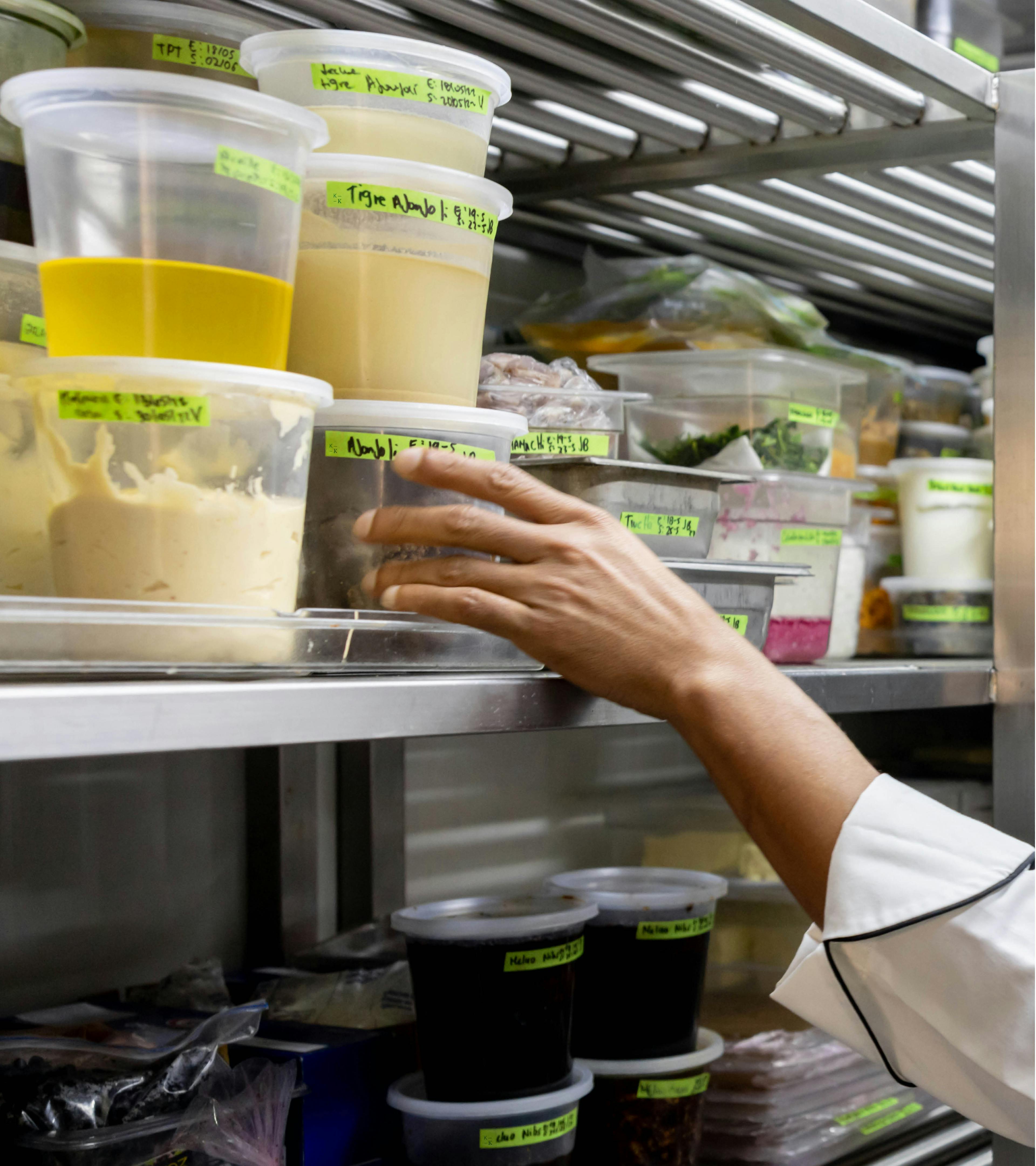
This two-and-a-half-year pilot programme involves 120 participants and is divided into two stages: a ‘baseline’ assessment to measure businesses’ food waste and a pilot to test various ‘interventions’ aimed at reducing food waste.
For the first phase, participants were engaged in a one-week baseline conducted over the first half of 2024 where they measured their food waste during specific time intervals.
The second step, currently under implementation, involves participants taking part in a four-week pilot, commencing at various intervals between August 2024 and April 2025. The pilots' trial different interventions to identify the most impactful strategies for reducing food waste.
This approach ensures a thorough examination of food waste behaviours and the effectiveness of interventions across varying timeframes.
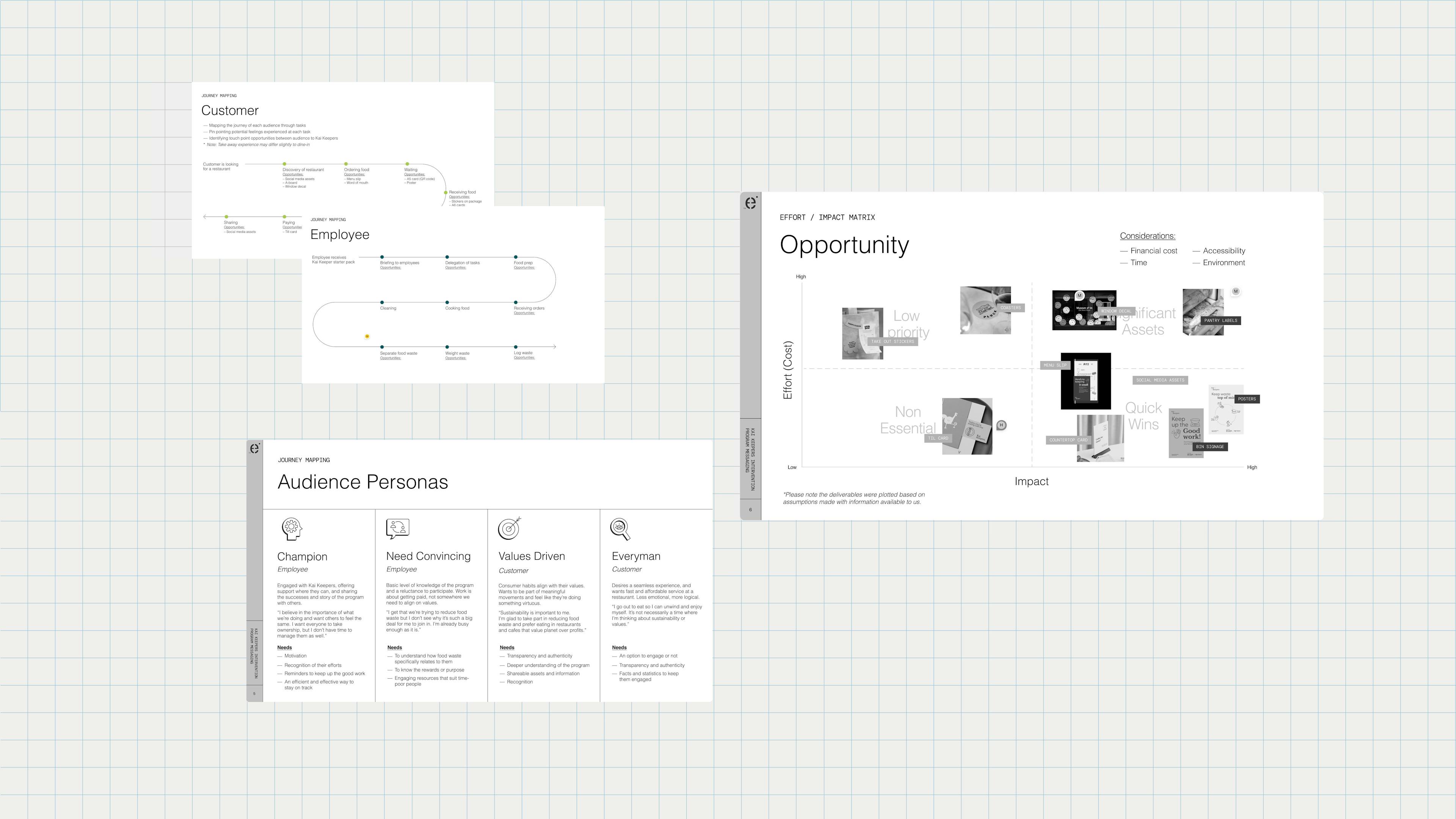
This project involved two key branding and communications deliverables:
- A branding exercise that captured the spirit of Kai Keepers and resonated with New Zealand’s cultural essence
- Along with the design of physical assets like posters, business cards, and table talkers.
These served as crucial touchpoints in each food waste intervention.
Edge Impact’s brand and communications specialists drew on insights from the intervention phases to craft a localised and culturally sensitive brand, subtly nodding to the Restaurant Association’s identity through shared colours, fonts, and illustrative styles.
Beyond reducing waste, Kai Keepers recognises the unique connection between hospitality businesses and their customers. By engaging customers directly, the programme extends its influence beyond the industry, fostering a culture of sustainability that reaches diners and inspires change at a community level.
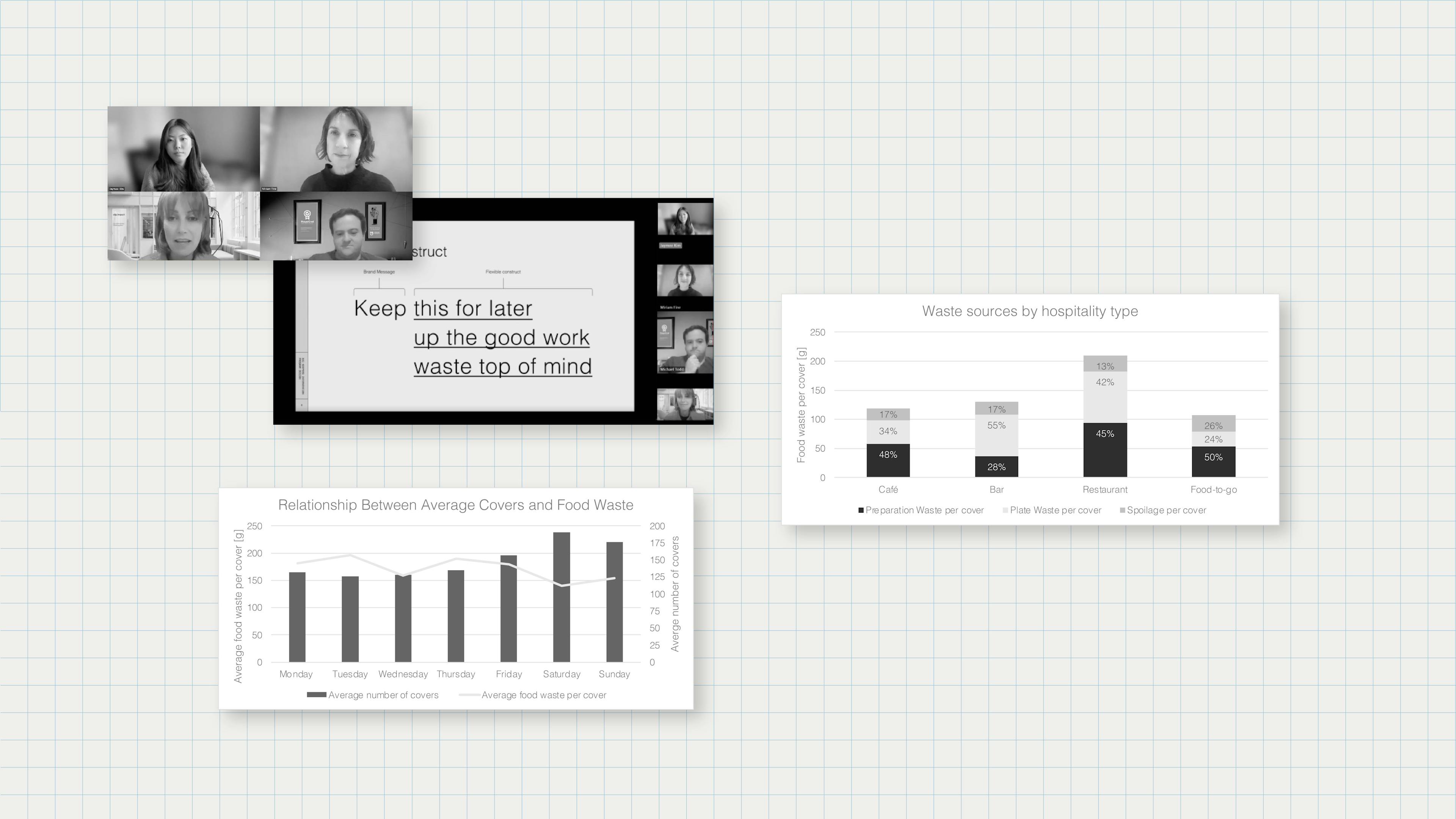
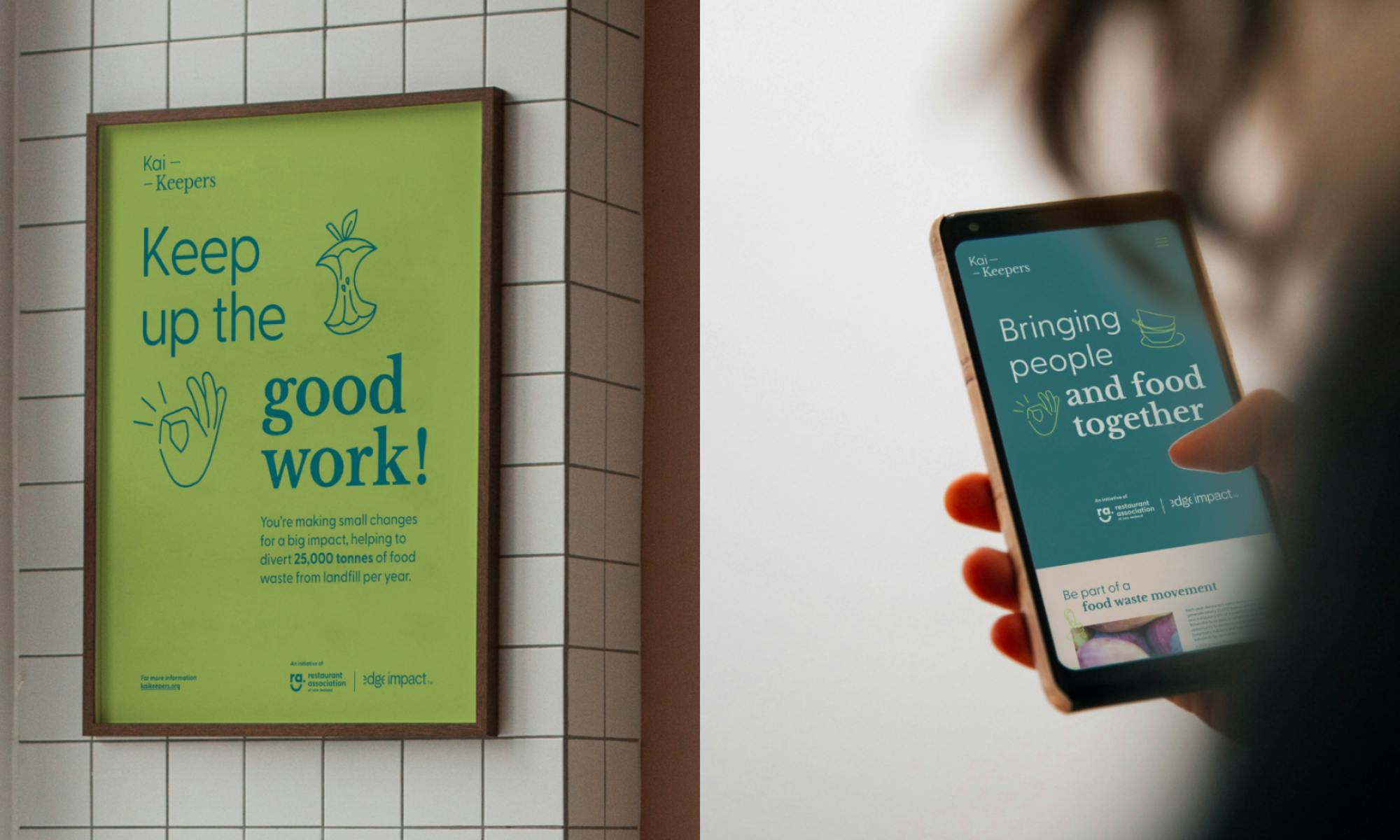
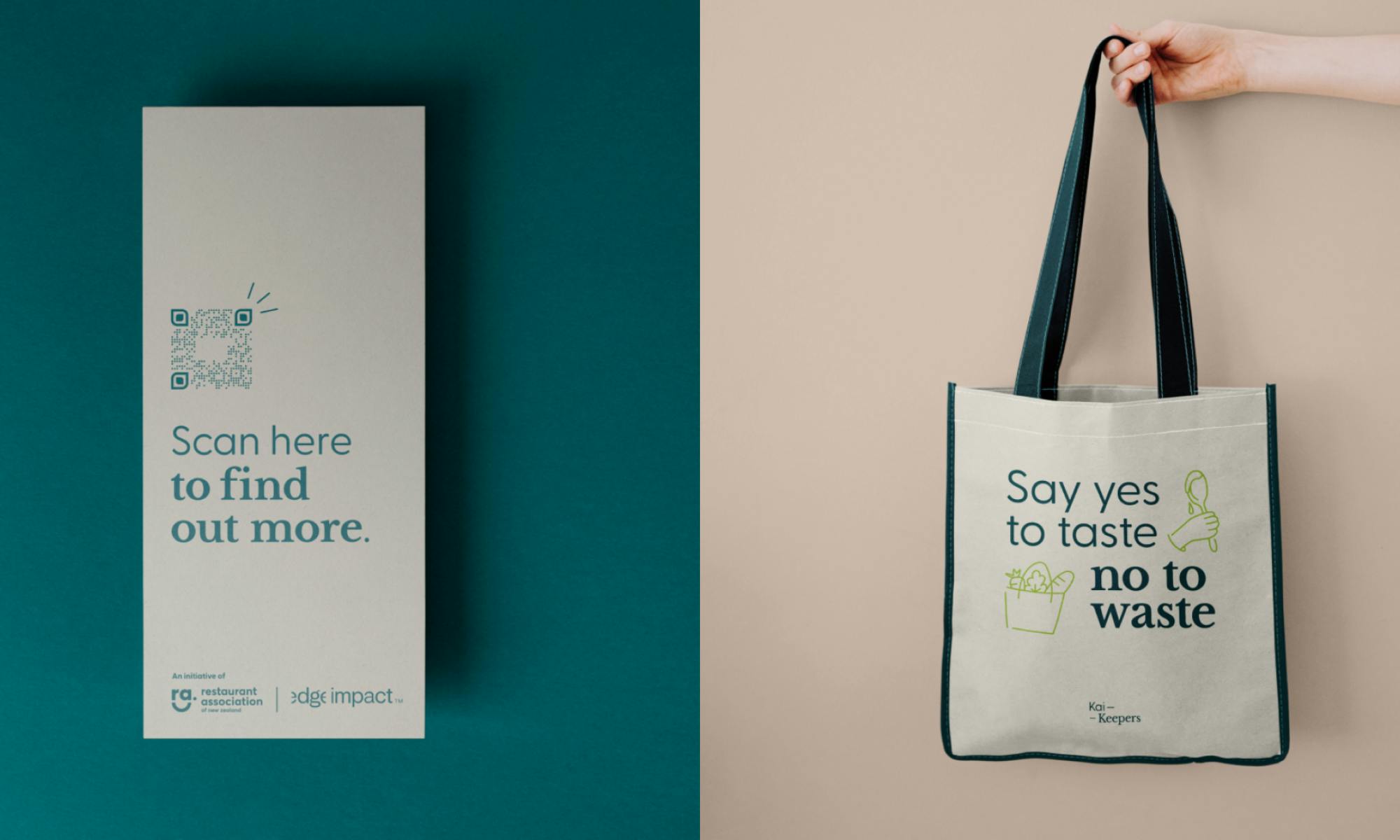
The Result
During the first phase, 120 participant restaurant and cafes across Auckland, Bay of Plenty and Waikato took part in a baseline assessment over a seven-day period where more than 13 tonnes of food waste were generated from the preparation of 108,730 meals.
According to self-reported data from participants, the food waste was generated from food preparation (44%), plate waste (43%) and spoilage (13%).
The baseline provided invaluable data, with a level of detail that has not been collected before.
Five Key insights included:
1. Staff involvement: Participants reported that business owners, managers, and staff were eager to adopt and enhance waste reduction practices, showcasing the industry's growing commitment to sustainability.
2. Food waste environmental impact: Over 13 tonnes of food waste was recorded from 108,730 covers. This waste resulted in more than 15 tonnes of CO2-e emissions, the equivalent of 70,840 kilometers travelled in a medium petrol-powered car. This is the same distance as travelling from Auckland to Wellington around 110 times.
3. The cost of food waste: The 13 tonnes of food waste is estimated to have cost businesses a combined $102,000 in lost value over the seven-day period based on food purchasing and waste management costs.
4. Average waste per cover: Each meal contributes an average of 171 grams of food waste, costing approximately $0.94 per cover.
5. Top wasted items: The top five food waste items nominated by participants were sauces such as ketchup and pesto, fresh and/or cooked vegetables, garnishes and side salads, meat, and eggs (including shells and cooked eggs).
Using these insights, Edge facilitated a focus group with participants to co-design four targeted food waste reduction interventions. These interventions are currently being piloted at different intervals between August 2024 and February 2025.
While the pilot phase will continue throughout the year, the Restaurant Association plans to scale up to a nationwide programme in 2025, ensuring that these tested solutions can drive widespread impact.
“Working in collaboration with Edge has been invaluable to this project. Their technical expertise and strategic insights have been key to setting up and implementing the rigorous behaviour change interventions and control trials.
Together, our partnership is key to developing practical solutions that will contribute positively to restaurants and cafes bottom line, while also driving long-lasting environmental impact across the entire hospitality industry.”
Marisa Bidois,
Chief Executive of the Restaurant Association of New Zealand
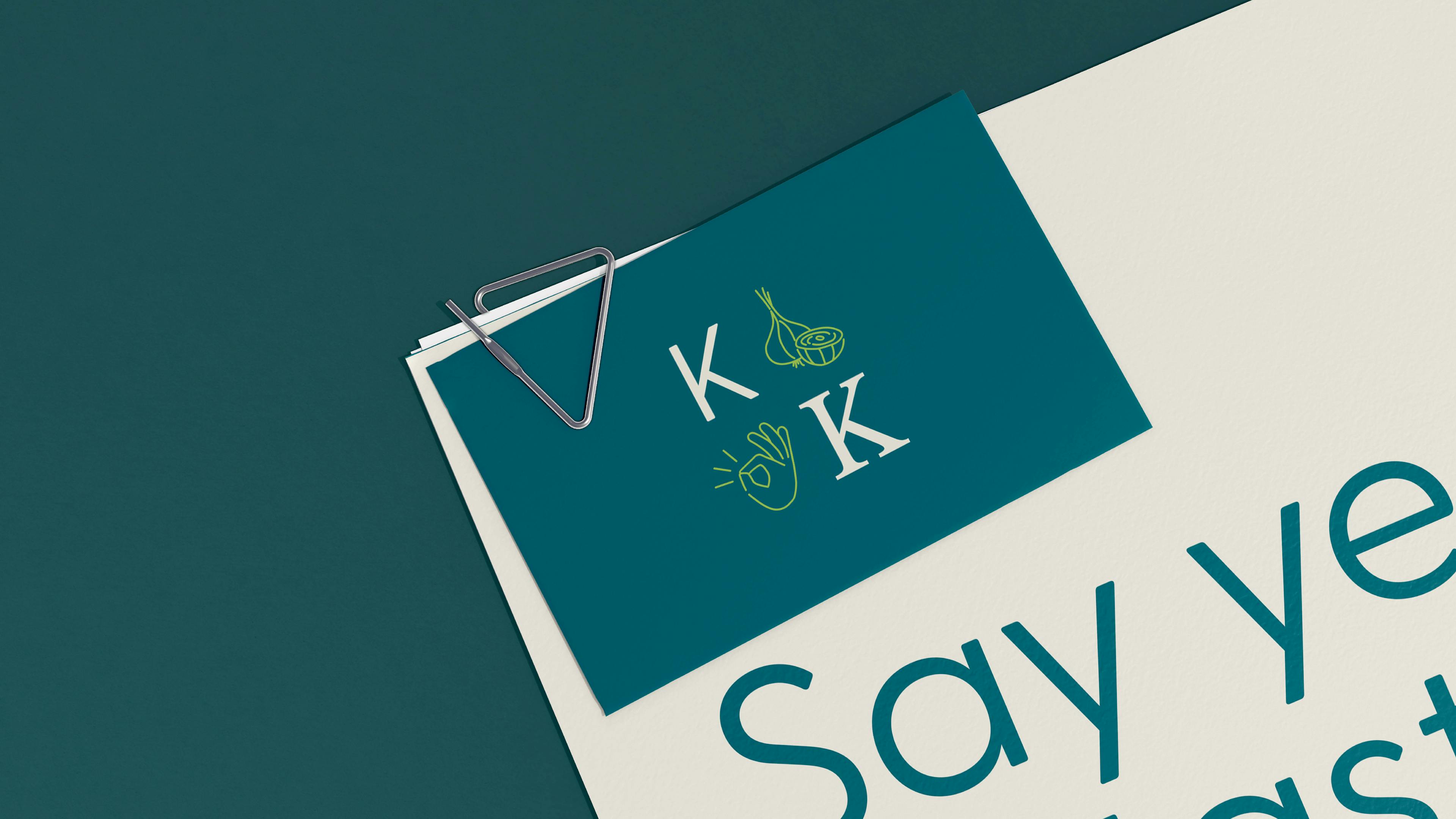
"We got great local support, we did a little social media push, which went well and people were keen to know more. It's a win-win because customers realise others aren't doing it."
Justin Thompson - The Shack Raglan
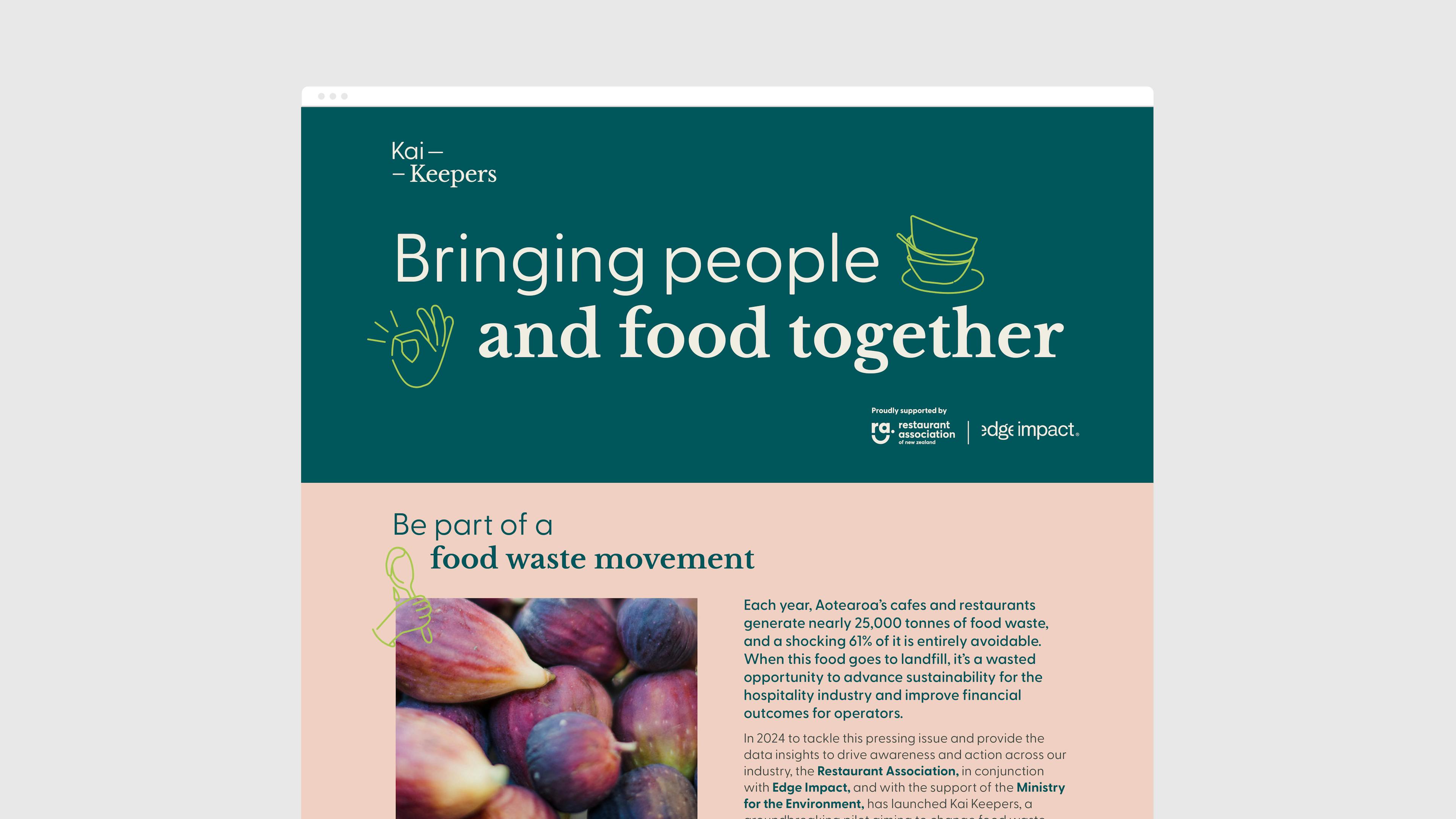
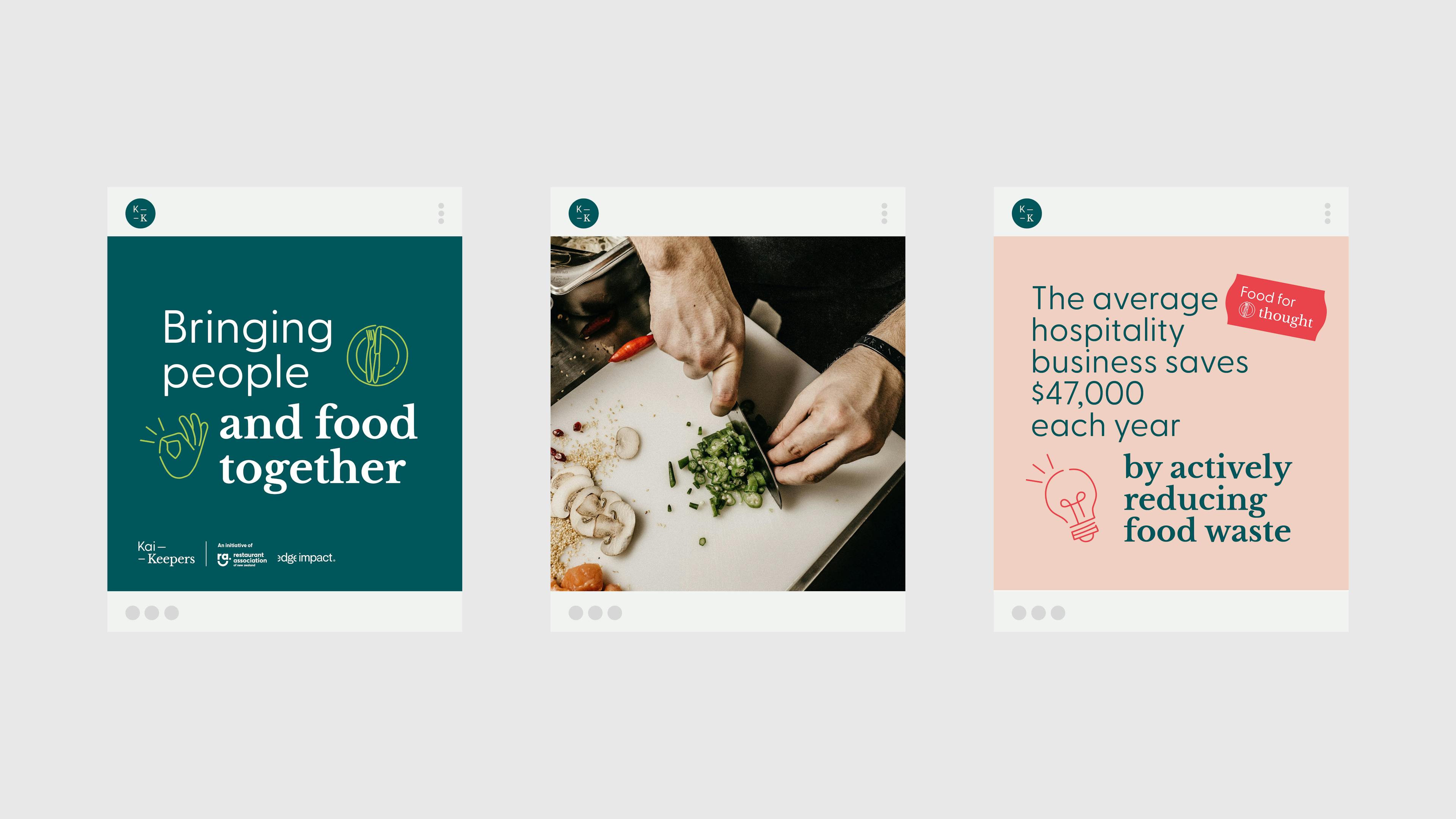
For more information on the Kai Keepers programme, visit the Restaurant Association's Kai Keepers Programme.


